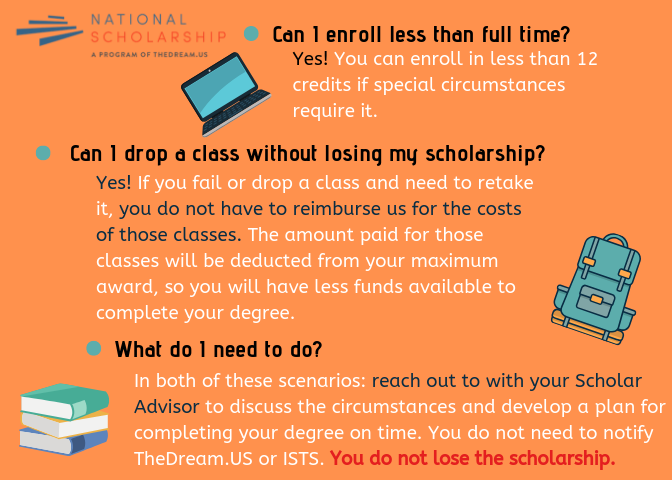
Hey there! Have you ever wondered what would happen if you were to lose your scholarship? It’s understandable to be concerned about this, especially if your scholarship has played a significant role in supporting your education. Losing a scholarship can have various consequences, from financial strain to potentially having to find alternative funding sources. But don’t worry, in this article, we’ll explore the potential repercussions of losing a scholarship and provide you with some guidance on what you can do to navigate this situation.
In this article, you’ll learn about the different reasons why someone might lose their scholarship, such as academic performance, failure to meet certain requirements, or even changes in financial circumstances. We’ll discuss some common steps you can take to try and regain your scholarship, including communicating with the scholarship provider or seeking financial aid alternatives. We’ll also explore how losing a scholarship can impact your future educational and career opportunities. So, if you’re curious about what happens if you lose your scholarship and want some advice on how to handle it, keep reading. We’ve got you covered!

Understanding Scholarships
Scholarships are a form of financial aid that helps students pay for their education. They are typically awarded based on merit, financial need, or a combination of both. Scholarships can be a significant source of support, as they help to cover tuition fees, books, and other expenses. However, losing a scholarship can have serious consequences. To understand these consequences, it’s essential to first understand the types of scholarships and how they are awarded.
Types of Scholarships
There are various types of scholarships available, each with its own set of eligibility criteria and requirements. Some common types include academic scholarships, athletic scholarships, merit scholarships, need-based scholarships, and scholarships for specific fields of study or demographic groups. Academic scholarships are usually awarded to students with outstanding academic achievements, while athletic scholarships are given to students who excel in sports. Merit scholarships are awarded based on a student’s special skills or talents, and need-based scholarships are granted to students who demonstrate financial need. Understanding the different types of scholarships can help you identify which ones you might be eligible for and increase your chances of receiving them.
How Scholarships are Awarded
Scholarships are typically awarded through a competitive process. This process may involve submitting an application, providing academic transcripts, writing essays, and attending interviews. The selection committee considers various factors, such as academic achievements, extracurricular activities, leadership abilities, and community involvement. They also take into account financial need, if applicable. Once the selection process is complete, scholarship recipients are notified and awarded the scholarship. However, it’s important to note that scholarships often come with certain requirements that must be met to retain the funding.
Importance of Scholarships
Scholarships play a significant role in helping students pursue their educational goals. They provide financial support that can alleviate the burden of tuition fees and other expenses. Scholarships also recognize and reward academic excellence, talent, and dedication. By receiving a scholarship, you may have the opportunity to focus more on your studies and extracurricular activities rather than worrying about financial constraints. Additionally, scholarships can enhance your resume and increase your chances of future academic and career success. Losing a scholarship, however, can have serious consequences that can significantly impact your financial situation, academic performance, and opportunities.

Consequences of Losing a Scholarship
Losing a scholarship can have both immediate and long-term consequences. It’s important to understand the potential financial implications, academic impact, and loss of opportunities that may arise.
Financial Implications
One of the most significant consequences of losing a scholarship is the financial burden it can impose. Scholarships often cover a considerable portion of tuition fees and other expenses, and losing them means you will have to find alternative sources of funding. This can put a strain on your finances, as you may need to rely more on personal savings, student loans, or part-time work to cover the costs. The additional financial burden can make it challenging to meet your financial obligations and may affect your overall financial stability.
Academic Impact
Losing a scholarship can also have an academic impact. Many scholarships come with academic requirements, such as maintaining a certain GPA (Grade Point Average) or completing a specific number of credits each semester. If you fail to meet these requirements, you may lose your scholarship. The loss of financial support can make it difficult to afford tuition fees, textbooks, and other study materials. This can potentially disrupt your studies and hinder your academic progress. It’s important to remember that scholarships are not only a form of financial aid but also a recognition of your academic abilities. Losing a scholarship may have a demoralizing effect and may negatively impact your motivation and overall academic performance.
Loss of Opportunities
Another consequence of losing a scholarship is the loss of opportunities that it may bring. Scholarships often provide additional benefits beyond financial aid, such as access to internships, study abroad programs, and networking opportunities. These experiences can greatly enhance your educational journey and help you build valuable connections for your future career. Losing a scholarship may mean missing out on these opportunities, which can impact your personal and professional growth. It’s important to consider these potential losses when evaluating the importance of maintaining your scholarship.

Strategies to Prevent Scholarship Loss
While losing a scholarship can have significant consequences, there are steps you can take to prevent this from happening. By being proactive and taking the necessary precautions, you can increase your chances of retaining your scholarship.
Maintaining Satisfactory Academic Progress
One of the most critical factors in maintaining your scholarship is to ensure consistent academic performance. This includes staying on top of your coursework, attending classes regularly, and seeking help when needed. By maintaining a satisfactory GPA and meeting all academic requirements, you can demonstrate your commitment to your education and increase your chances of retaining your scholarship.
Taking Advantage of Support Services
Many schools offer support services designed to help students succeed academically. These services may include tutoring, study groups, academic advising, and counseling. By taking advantage of these resources, you can receive additional support and guidance to improve your academic performance. These services can be particularly helpful if you are facing challenges in specific subjects or struggling with time management.
Building a Strong Relationship with Advisors
Developing a strong relationship with your academic advisor can also be beneficial in preventing scholarship loss. Your advisor can provide guidance and support in choosing classes, managing your course load, and addressing any academic concerns. They can also help you navigate the scholarship requirements and ensure you are on track to meet them. Regularly meeting with your advisor and seeking their advice can help you stay on top of your academic responsibilities and increase your chances of retaining your scholarship.

Steps to Take After Losing a Scholarship
In the unfortunate event that you do lose your scholarship, there are steps you can take to mitigate the impact and seek alternative support.
Evaluate the Reasons for Loss
The first step is to evaluate the reasons behind losing your scholarship. Reflect on what led to the loss and identify areas where you can improve. This self-reflection can help you understand any mistakes you made and develop a plan to address them.
Seek Alternative Financial Aid
After losing a scholarship, it’s important to explore alternative sources of financial aid. This may include researching and applying for other scholarships and grants that you may be eligible for. Additionally, you may need to consider student loans as a last resort to cover the cost of your education. It’s important to carefully evaluate the terms and conditions of any loans you consider and ensure that you can comfortably manage the repayments in the future.
Address Academic Challenges
If academic challenges contributed to the loss of your scholarship, it’s crucial to address them promptly. Develop an academic improvement plan in consultation with your advisor. This plan may include setting specific goals, seeking tutoring or academic support, and implementing effective study strategies. By addressing your academic challenges head-on, you can work towards improving your performance and increasing your chances of future academic success.

Conclusion
Losing a scholarship can have significant consequences that can impact your financial well-being, academic progress, and future opportunities. It’s essential to understand the different types of scholarships, how they are awarded, and the importance they hold. By taking proactive steps to prevent scholarship loss and seeking alternative support when necessary, you can mitigate the impact and continue on your educational journey. Remember to maintain satisfactory academic progress, make use of support services, and build a strong relationship with your advisors. While losing a scholarship is unfortunate, it does not define your entire educational journey. By staying resilient and determined, you can overcome this setback and continue to pursue your goals.





